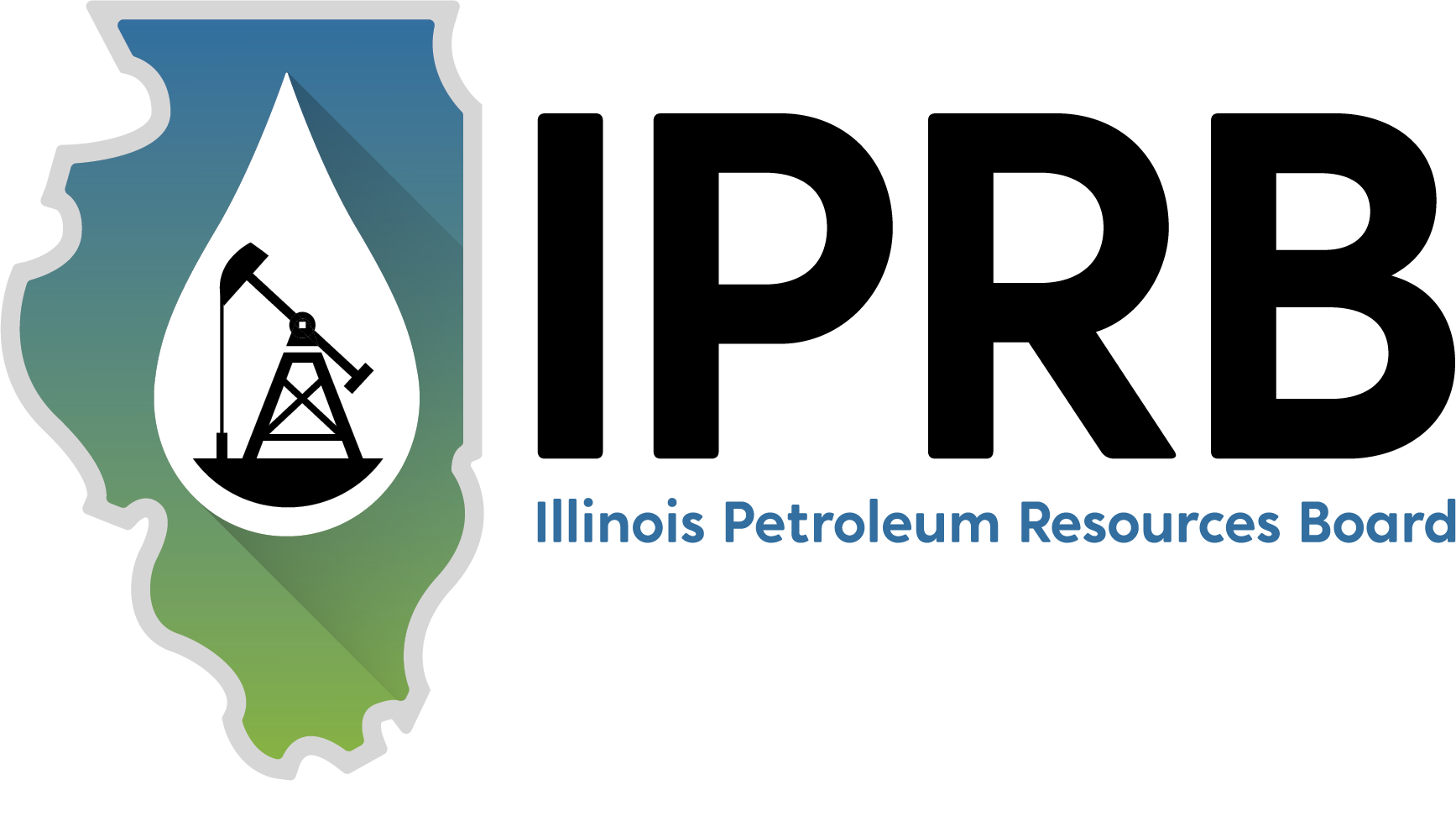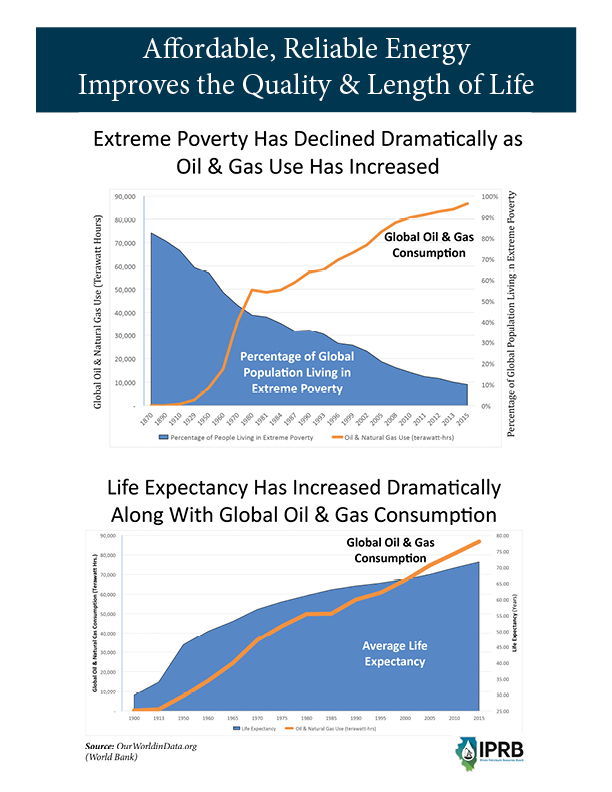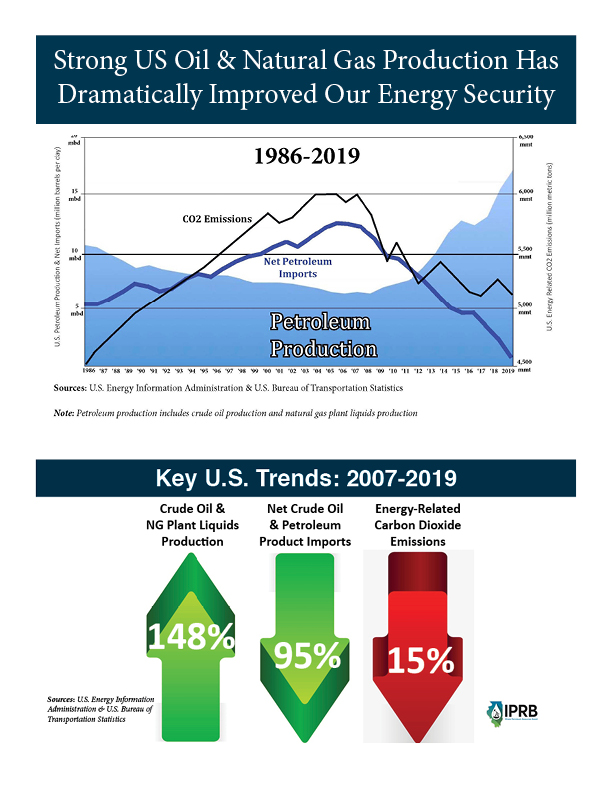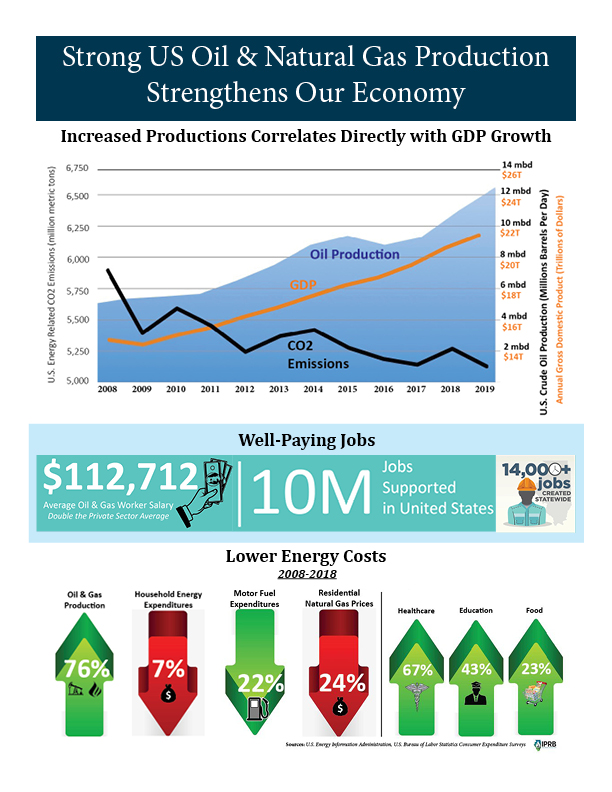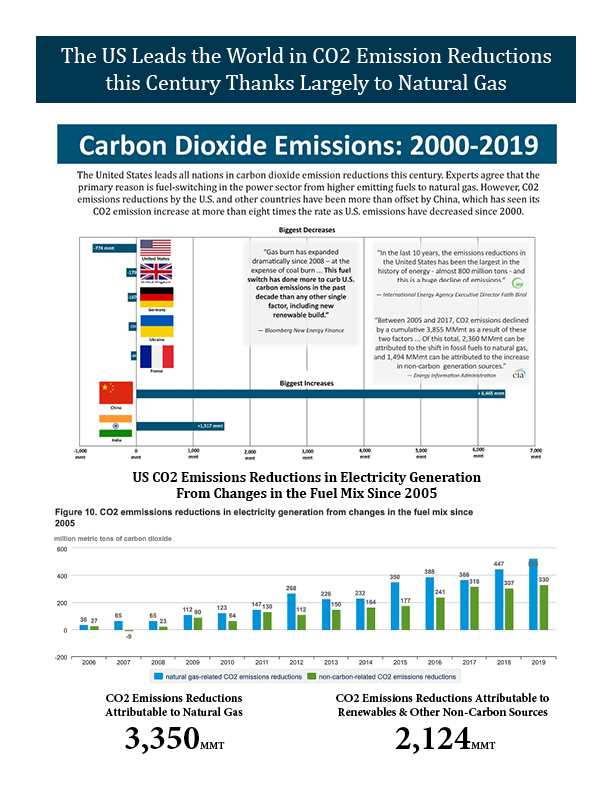5 Positive US Oil and Natural Gas Facts Everyone Should Know
 The U.S. oil and natural gas industry almost always finds itself on the defensive, responding to relentless attacks from the “Keep It In the Ground” movement. Largely under-emphasized or taken for granted – even by oil and natural gas industry proponents – are the myriad of undeniable positives that oil and natural gas bring to society.
The U.S. oil and natural gas industry almost always finds itself on the defensive, responding to relentless attacks from the “Keep It In the Ground” movement. Largely under-emphasized or taken for granted – even by oil and natural gas industry proponents – are the myriad of undeniable positives that oil and natural gas bring to society.
With calls to “Keep It In The Ground” gaining more and more mainstream traction, it is more important than ever to remind folks that oil and natural gas are essential to modern life, with benefits that far outweigh its negatives. Here are five examples that every oil and natural gas industry proponent should know and proudly share.
#1: Oil and Gas Has Improved Both Quality and Length of Life
Access to affordable, reliable energy correlates directly improved living standards and longer life expectancy. That explains why the average life expectancy has doubled at the same time oil and natural as consumption has skyrocketed over the past century-plus. And as more and more of the world has gained access to reliable energy, the percentage of the global population living in extreme poverty has plummeted from more than 80 percent to below 10 percent for the first time in human history.
CLICK TO ENLARGE
Those throughout the world who are currently living in extreme poverty have one thing in common – they lack access to the modern energy the rest of the world enjoys and takes for granted. Put another way, energy poverty is extreme poverty. Fossil fuels supply more than 80 percent of the world’s energy and have greatly improve quality of life by providing heating and cooling to reduce the impacts of extreme weather, fuel and fertilizer for modern agriculture to nourish an exploding population, electricity and transportation to revolutionize efficiency and productivity, and tools that make the miracle of modern healthcare possible (more on that below).
#2: Oil and Gas Are Essential to Quality, Modern Healthcare
A 2011 peer-reviewed study published in the American Journal of Public Health notes, “Petroleum is used widely in health care – primarily as a transport fuel and feedstock for pharmaceuticals, plastics and medical supplies – and few substitutes for it are available.”
Indeed, oil and natural gas are absolutely essential to modern healthcare, literally helping our medical professionals save lives. It is estimated the average emergency room has 90 products derived from petroleum and natural gas. It is also estimated that 80 to 90 percent of pharmaceuticals are made of petroleum.
A wide range of medical devices – ranging from pacemakers, heart valves, monitors, respirators and 3.5 billion face masks used by medical professionals – are petroleum-based or include critical components that are derived from petroleum.
#3: Strong US Oil and Gas Production Makes Us More Secure
Almost 70 percent of U.S. energy comes from oil and natural gas and a vast majority of Americans agree that producing oil and gas here in the United States is far more ideal than importing it from oftentimes hostile nations.
Fortunately, the United States is closer to long-sought energy independence than was ever dreamed possible. Department of Energy data show that since 2007, net crude oil and petroleum product imports have declined 95 percent at the same time domestic crude oil and liquids production have increased 148 percent. Despite the ongoing pandemic, the United States is on pace to be an net petroleum exporter on an annual basis in 2020 for the first time since 1949.
Just 13 years removed from being the world’s biggest energy importer, America is now on a trajectory to completely wipe out an energy trade deficit that peaked at $321 billion in 2011. Much to the chagrin of the hostile nations we once relied heavily on to meet our energy needs, what was once a glaring national weakness is now a strength, and our geopolitical position is as strong as its been in decades as a result.
Considering carbon dioxide emissions have declined 15 percent during this timespan, the energy security benefits of strong U.S. oil and natural gas production are an undeniable net positive for our country.
CLICK TO ENLARGE
#4: Strong US Oil and Gas Production Bolsters Our Economy
Rising US oil and natural gas production has historically correlated directly with economic growth in the country – with the past decade-plus being a prime example.
As oil and natural gas production skyrocketed in the United States over the past decade-plus, the U.S. enjoyed an unprecedented 11 consecutive years of gross domestic product (GDP) growth prior to the COVID-19 pandemic. The oil and natural gas boom has been credited for 10 percent of GDP growth since the Great Recession.
This economic prosperity can largely be explained by the fact that strong domestic oil and natural gas production dramatically reduces foreign imports, keeping billions of dollars here in our own economy rather than exporting them oversees. Our newfound energy bounty has also proven the equivalent of a massive tax cut, lowering energy costs dramatically. In fact, the Department of Energy reported in 2018 that average U.S. energy costs fell 34 percent from 2008 to 2016, dropping from record-high levels to a “record-low energy expenditure share” in less than a decade.
The U.S. oil and natural gas industry also continues to support more than 10 million jobs across the United States, with direct oil and natural gas industry jobs paying an average salary double the private sector average ($112,712 per year).
Energy is the one thing that all Americans use. And with that fundamental reality in mind, we have literally been able to drill our way to lower energy prices and economic prosperity over the past decade-plus, all while reducing greenhouse gas emissions.
CLICK TO ENLARGE
#5: The US Lead the World In CO2 Reductions Thanks Largely to Natural Gas
The United States has reduced carbon dioxide emissions more than any other country this century. And although it may surprise casual observers, experts agree that the primary reason for these emission declines is fuel-switching to clean-burning natural gas, which has been made possible by industry innovation. That’s right: the same technologies that have allowed us to emerge as the leading oil and natural gas producer in the world are also largely responsible for our status as the world leader in greenhouse gas emission reductions. The decoupling trend is unprecedented and shows that we don’t have to choose between the economy and environment.
The emissions reductions have been driven by fuel-switching in the electricity generation sector, with the Energy Information Administration estimating that natural gas is actually responsible for 58 percent more power sector CO2 emissions reductions than renewables and other non-carbon electricity generation sources.
CLICK TO ENLARGE
Conclusion
Illinois Gov. JB Pritzker recently designated the oil and natural gas industry as “essential,” echoing the sentiment of governors throughout the country. As the above five examples illustrate, Pritzker’s designation was certainly justified. Oil and natural gas provide clear positive net benefits to society, improving quality and length of life by enhancing modern healthcare and fueling economic prosperity. Strong U.S. oil and natural gas production also greatly reducing our reliance on hostile foreign nations for our energy needs and has played a large roll in allowing us to reduce greenhouse gas emissions.
These are just a few examples of why the “Keep It In the Ground” movement’s stated goal of destroying this essential industry is a threat to our nation’s public health, economy and overall security.
